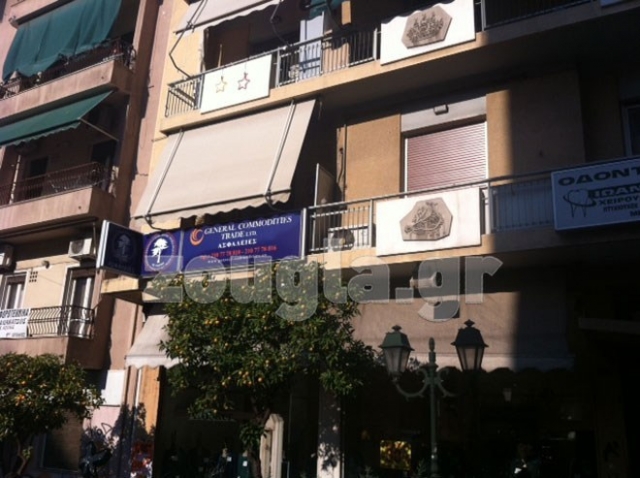A criminal network had been able to steal over four million euro by issuing fake insurance policies, their extremely low prices being the catch to the unsuspecting customers.
So far, the Greek investigative authorities have seized 17 members of the gang of scammers and they continue to search for the other 16 close associates of the criminal group.
As reported by zougla.gr, the unravelling of the case had begun on 16 October this year, when the owner of a Greek insurance company had filed a complaint with the police that an insurance company had issued insurance policies, using the stamp and the name of his company without his knowledge.

A day earlier, a citizen had called him to verify his car insurance in the insurance company and it turned out that the specific car was not insured by that company.
After the complaint, members of the police department for property rights protection had organised a campaign to reveal the fraud. The citizen who had filed the complaint had visited the office of the insurance agent and obtained a photocopy of the insurance policy issued by General Commodities Trade Ltd., which contained the name of the insurance company Lev Ins in the upper left corner.
Immediately afterwards, the police carried out an inspection of the office in the presence of four people who were later arrested. The authorities had found and confiscated folders with documents containing receipts for fines imposed by the traffic police, insurance policies and 3,700 original certificates.

During the questioning, one of those arrested said that he was an insurance broker and co-owner of the agency, and indicated as his partners three other persons, who were later arrested too. He pointed out that the agency had not signed any cooperation agreement with any insurance company because it had paid the certificates in cash, with the money it had received from the customers in advance.
As for the nonexistent insurance company, General Commodities Trade Ltd., he explained that its representative was the legal representative of the Bulgarian Lev Ins insurance company in Greece.
A day later, a woman with initials G.K. went to the police and presented herself as an insurance broker of General Commodities Trade Ltd. She told the authorities that the office in Athens was a branch of the company, the head office of which was located in Sofia. According to her, the manager and legal representative of the branch was a man with initials D.P. who, as revealed by the police, was at the centre of the network. The woman said that the branch had been opened on 12 October 2012 and cooperated with 18 insurance agencies, and submitted a list of their names at the same time.
Crucial to the investigation was the testimony of the director of the Association of Insurance Companies in Greece and of the head of the Register Department of the Professional Chamber of Athens.
The director with initials I.T. told the authorities that the existence of fake insurance contracts issued by Lev Ins had been referred to the Association back in August 2012. The head of the Registry Department stated that the representative of General Commodities Trade Ltd. in Greece had applied for a new office opening on 28 March this year.
After being approved, the company General Commodities Trade Ltd. had been included in the general commercial register but not in the register of the Professional Chamber in Athens. Under the current law, this is impossible, as the Greek branch had been entered in such a register in Sofia.
The lawyer of Lev Ins with initials S.F. testified in late October and said that since January 2013 he had been informed that General Commodities Trade Ltd. had presented itself as part of Lev Ins and signed insurance contracts on its behalf.
According to the lawyer, the Bulgarian company had filed in February a claim with the Athens court to seize the activity of General Commodities Trade Ltd. and for it to stop using its name and data.
Subsequently, it turned out that the representative of General Commodities Trade Ltd., D.M., had never signed a contract with Lev Ins. The cooperation agreement with the Bulgarian insurance company provided by him was actually a product of forgery.
The fraud was uncovered when the Bank of Greece checked the activities of General Commodities Trade Ltd. and its inspectors detected a number of illegal activities for which they had imposed administrative sanctions on D.M. and his close associate T.P as well as a fine to the amount of 50,000 euro.
According to the report, D.M. in cooperation with T.P. was the broker behind a large number of insurance contracts, without having a legitimate licence issued by the relevant professional chamber.
Whenever a customer complained to both "insurers" that he had been fined for the lack of insurance, because the traffic police had not accepted the false contract, the participants in the fraud network paid the full amount of the fine to avoid being revealed.
The criminal network had a representative and office in northern Greece too, including an agency, which had insured seven cars.
According to the police investigation, from October 2012 to today, General Commodities Trade Ltd. has signed 12,500 contracts, the total profit from the fraud amounting to four million euro.